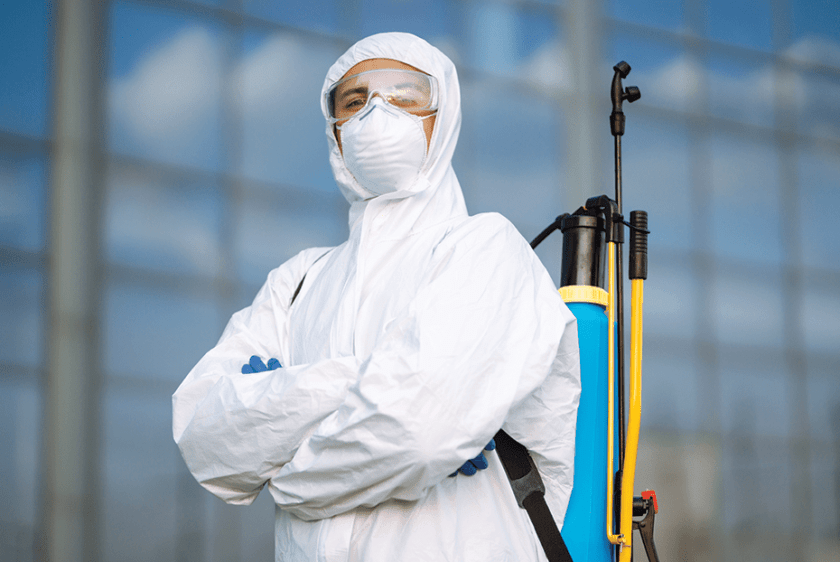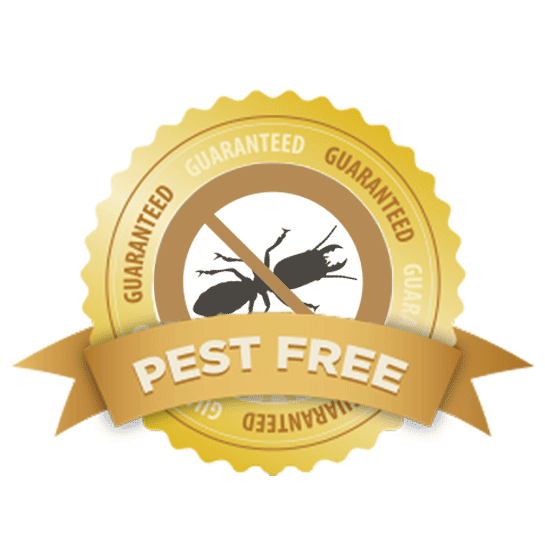Safe and Dependable Insect Control for Lasting Security
Effective parasite management needs a diverse strategy that balances environmental honesty with the need for efficient parasite reductions. The subtleties of these approaches may not be quickly clear, motivating a closer exam of the practices that can lead to sustainable parasite control end results.
Understanding Parasite Control Methods
Bug control incorporates a selection of methods focused on handling and removing undesirable pests and rats that can threaten both health and residential or commercial property. Recognizing these methods is vital for reliable parasite monitoring.
The key groups of bug control techniques consist of mechanical, organic, and chemical techniques. Mechanical methods include physical obstacles and catches to avoid bug entrance and capture unwanted species. Making use of displays on home windows or using sticky traps can dramatically lower pest populaces without presenting dangerous substances - exterminator coquitlam.

Chemical parasite control is usually the most recognized technique, utilizing chemicals to get rid of pests. These chemicals can be reliable but have to be used with care to avoid damaging impacts on non-target species and the atmosphere.
Advantages of Eco-Friendly Solutions
Exactly how can environmentally friendly solutions transform bug control practices? The adoption of green bug control approaches supplies many advantages, substantially boosting the effectiveness and security of parasite administration (exterminator coquitlam). These options make use of natural components, lowering the dependence on hazardous chemicals that can position dangers to human health and wellness and the setting. This shift not just secures families and animals yet also minimizes the potential for soil and water contamination.

Another benefit is the favorable influence on neighborhood biodiversity. Green options are developed to target particular insects while preserving valuable bugs and wild animals, promoting a well balanced community. This approach aligns with the growing customer demand for lasting practices, boosting the track record of parasite control service providers.
Integrated Parasite Management Approaches
The implementation of eco-friendly remedies normally brings about the adoption of Integrated Pest Administration (IPM) strategies, which better improve parasite control effectiveness. IPM is an all natural approach that integrates numerous methods to handle bug populations while lessening ecological influence. This technique highlights the usage of biological, cultural, mechanical, and chemical controls, making certain a sustainable and well balanced method of pest administration.
One basic aspect of IPM is the thorough analysis of parasite activity and environmental conditions. By monitoring pest populations and determining their life process, specialists can carry out targeted treatments that interfere with the pest's habitat or lifecycle, reducing reliance on chemical pesticides. In addition, social methods such as plant turning and environment control can dramatically diminish insect facility and reproduction.
One more important part is the usage of organic control agents, such as useful bugs or bacteria, which can naturally suppress pest populaces. When chemical applications are essential, IPM prioritizes making use of low-risk pesticides and uses them uniquely, decreasing direct exposure to non-target microorganisms and humans.
Including IPM approaches not just enhances insect control effectiveness yet additionally promotes a much safer community, aligning with the expanding need for sustainable practices in bug administration.
Safe Practices for Property Owners
Understanding the relevance of secure methods in pest control can encourage homeowners to efficiently manage bug problems while safeguarding their wellness and the atmosphere. Implementing non-toxic methods and preventative actions is important in reducing exposure to unsafe chemicals.
House owners need to first analyze their environment for conditions that bring in pests, such as standing water, food, and mess waste. Consistently cleaning and sealing entrance factors can hinder bugs from invading the home. Utilizing natural deterrents, such as necessary oils or diatomaceous planet, can provide effective options to chemical pesticides.
When chemical treatments are required, house owners need to select products that are particularly identified as risk-free for domestic usage. It is vital to adhere to application standards meticulously to avoid overexposure. Additionally, using targeted therapies in areas where insects are recognized, as opposed to blanket spraying, can substantially reduce chemical use.
Finally, maintaining open communication with pest control specialists is essential. Home owners ought to ask about the security read review of items made use of and demand environment-friendly options whenever feasible. By adopting these safe practices, homeowners can develop a healthier living atmosphere while efficiently managing pest this contact form concerns.

Tips for Long-Term Security
Developing a bug administration strategy that stresses long-lasting defense can significantly boost the efficiency of the safe techniques previously reviewed. To accomplish this, homeowners need to carry out regular assessments of their property, concentrating on concealed areas such as attic rooms, basements, and crawl rooms. Early detection of parasite activity is critical in avoiding problems from taking hold.
In addition, keeping a tidy setting is important. This consists of proper food storage, without delay cleaning spills, and regularly getting rid of garbage. These practices minimize attractants that attract pests right into the home. Sealing access factors, such as splits around windows and doors, can properly block prospective insect gain access to.
Landscape design must additionally be considered; keeping plants trimmed and maintaining a range in between vegetation and the home minimizes concealing places for parasites. Making use of all-natural deterrents, such as crucial oils or diatomaceous planet, can better prevent problems without considering harsh chemicals.
Lastly, collaborating with a professional pest control service for routine analyses can give an extra layer of safety and security. These experts can offer customized referrals and progressed treatments, guaranteeing that your home remains shielded against bugs in the lengthy term.
Conclusion
Finally, trusted and secure insect control requires a complex technique that highlights environment-friendly methods and incorporated bug administration. By executing natural deterrents, performing regular inspections, and preserving proper hygiene, home owners can dramatically minimize pest why not look here populaces while protecting valuable bugs and the setting. Collaboration with expert bug control services boosts the effectiveness of these approaches, guaranteeing customized solutions that offer lasting security and satisfaction against future invasions.
Reliable insect monitoring requires a diverse strategy that balances environmental honesty with the need for efficient parasite suppression. The fostering of environment-friendly bug control methods uses countless benefits, substantially boosting the effectiveness and safety of parasite management.The application of green solutions naturally leads to the adoption of Integrated Insect Administration (IPM) approaches, which better boost bug control efficacy. exterminator coquitlam. By monitoring insect populaces and recognizing their life cycles, experts can execute targeted treatments that interfere with the parasite's environment or lifecycle, reducing reliance on chemical pesticides.In conclusion, safe and dependable pest control requires a multifaceted approach that emphasizes eco-friendly methods and integrated insect administration